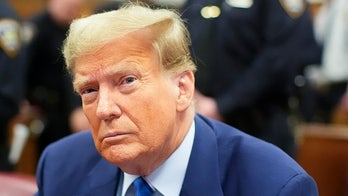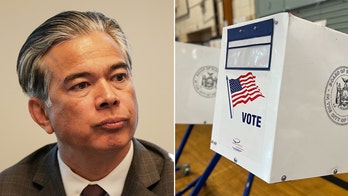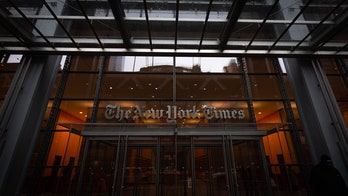Associated Press – Half a century has passed since U.S. President Lyndon B. Johnson asked a joint session of Congress to respond to the brutal beatings of protesters in Selma, Alabama, by passing a federal Voting Rights Act that would "open the city of hope to all people of all races."
While this week's commemorations of the 50th anniversary of "Bloody Sunday" may invoke memories of historic events in which the "real hero," as Johnson said, was "the American Negro," little is said about Johnson's call in that speech to include Mexican-Americans in the struggle for equality.
"It was a defining moment for Johnson and Mexican-Americans," Julie Leininger Pycior, a Manhattan College history professor, said. "And yet it is a moment that is almost totally forgotten."
Nationally televised images of protesters violently beaten, whipped and tear-gassed — even trampled by horses — at the hands of police during a march from Selma to the state capitol, Montgomery, triggered mass outrage and more demonstrations around the country. The incident, which became known as "Bloody Sunday," galvanized U.S. leaders and ultimately yielded passage of the Voting Rights Act of 1965.
During his address to Congress following those broadcasts, Johnson spoke passionately about poverty and equal rights, a sensitivity influenced, he said, by discrimination against Mexican-Americans that he witnessed as a young teacher at a segregated school in Cotulla, Texas, in the 1920s.
William Bonilla, 84, a retired lawyer in Corpus Christi, Texas, was president of the League of United Latin American Citizens in 1965, then the nation's largest Latino civil rights organization. Johnson had told him privately about his Cotulla experience, Bonilla said, and hearing the president share it in a national address was an emotional moment for many Mexican-Americans.
"I could tell he never forgot those students. He was sincere," Bonilla said.
According to transcripts of the Johnson presidential recordings at the University of Virginia's Miller Center, Johnson told Martin Luther King Jr. of his desire for "equality for all" well before the first Selma march, which took place March 7, 1965.
On Jan. 15, 1965 — King's 36th birthday — Johnson returned King's phone call and told him a voting rights bill would be better if "we just extend it (to everyone), whether it's a Negro, whether it's a Mexican or who it is."
"Yeah," King said.
Johnson went on to say that such legislation could be the "greatest achievement of his administration," to which King replied, "That's right. That's right."
While campaigning along the U.S.-Mexico border for a U.S. Senate seat in 1948 and again in 1954, Johnson took note of the effects that poverty and discrimination had on Mexican-Americans. One of his first acts in office was to arrange burial at Arlington National Cemetery for Army Pvt. Felix Longoria, who was killed during World War II and buried in the Philippines.
Longoria's remains were returned to the U.S. a few years later, and a Texas funeral director told Longoria's widow that he could not provide chapel services for her husband, because "the whites wouldn't like it." Johnson intervened, and Longoria was buried at Arlington in 1949.
Johnson "came to understand racism and poverty through the Mexican-American experience," Brian Behnken, an Iowa State University history professor and author of a book about the civil rights struggle in Texas, said. However, Behnken added, Johnson also tread lightly on the issue so as not to incite segregationists.
That changed once Johnson became president.
Congress passed the Voting Rights Act in August 1965, and Johnson signed it into law on Aug. 6.




